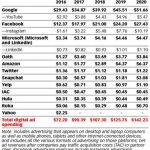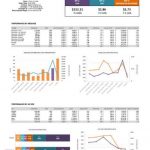Advertisers are ready to get ‘aggressive’ about enforcing Ads.txt adoption
To accelerate publishers’ slow adoption of Ads.txt, advertisers are prepared to begin enforcing the anti-fraud initiative as soon as the fourth quarter.

Ad buyers are dissatisfied with publishers’ slower-than-expected adoption of the industry’s anti-fraud initiative, Ads.txt. Now they are nearing an ultimatum: Publishers need to upload a public list of their programmatic sellers and resellers, or they will be left out of brands’ programmatic ad buys.
“Some advertisers care a lot about making sure that we’re not buying fraudulent inventory, and for those I think it will be as soon as Q4 that we start to say, ‘We’re only buying through Ads.txt-enabled publishers.’ Something like that is going to need to happen sooner than later to actually push the publishers to where they need to be,” said DigitasLBi’s VP and director of programmatic, Liane Nadeau.
Resolution Media, which oversees technology-based media buying across Omnicom Media Group, has created a program called the Inventory Authentication Initiative to reduce the amount of fraud sold to its clients. Enforcing Ads.txt adoption is a pillar of that program.
“We’re mandating our publisher partners adopt Ads.txt for all of our open exchange buying. So we’re requiring any and all publishers that we partner with on a programmatic basis to implement the protocol with an aggressive but what we feel is achievable timeline,” said Resolution Media president George Manas.
Manas declined to specify the agency’s exact timeline for enforcement, but he did wink at one. Execs at Forbes and Google told me last month that advertisers and the DSPs (demand-side platforms) they use to buy ads programmatically plan to start enforcing Ads.txt adoption in the fourth quarter of 2017. Asked how that timeline aligns with Resolution Media’s, Manas said, “What we’re always looking for is to beat the market for our clients. So I would emphasize the ‘aggressive’ part of ‘aggressive and achievable.’”
Why Ads.txt is an urgent issue for advertisers
The buy side is aggressively adopting Ads.txt for good reason. By only buying inventory available from the listed supply-side platforms (SSPs), advertisers can mitigate the amount of fraudulent inventory in the market.
One of the biggest sources of ad fraud is called domain spoofing, which can be used to avert the whitelists and blacklists that advertisers institute to specify which sites can and cannot feature their ads.
Here’s how that works: A site like FakeNooz.com can sell ads through an open ad exchange alongside inventory from more reputable sites. But no reputable advertiser wants to buy ads from FakeNooz.com, especially if they’re using whitelists and blacklists. So when FakeNooz.com has an ad slot to sell through the exchange, it changes the domain name on the bid request to nytimes.com, and advertisers looking to buy ads on The New York Times’s site end up purchasing ads from FakeNooz.com. “It’s something that isn’t able to be stopped before bids are made,” said Nadeau.
Ads.txt enables advertisers to avert the issue. Instead of taking the domain name on a bid request at face value, the advertiser, through its DSP, can cross-reference The New York Times’s Ads.txt file. First, it can see if the Times sells ads through the particular exchange that FakeNooz.com is using. And if it is, then it can check that the unique publisher ID attached to the bid request matches the one listed on the Times’s Ads.txt file. If it doesn’t match, then the DSP knows that the inventory is fraudulent and can opt not to buy it.
Publishers’ level of adoption is ‘disappointing’
However, the success of Ads.txt in fighting ad fraud depends on both sides of a programmatic ad sale participating. Advertisers and agencies are prepared to base their programmatic ad buys on publishers’ Ads.txt files. And DSPs like MediaMath have already built tools to check a publisher’s Ads.txt file when placing those buys on a brand’s behalf. Now they are waiting for publishers to meet them halfway.
“We are ready for it. Our DSPs are ready to implement this. And we’re really just waiting on the inventory,” said Nadeau.
The wait has surprised executives on the buy side. “The original estimation was adoption was going to pick up speed and peak over the summer. And that hasn’t really happened,” Lewis Rothkopf, general manager of supply at MediaMath.
While the IAB Tech Lab only released the finalized Ads.txt specification in June 2017, it doesn’t take long for publishers to implement it. Dotdash was able to wrangle a list of its programmatic sales partners across six sites in a day. And while Forbes needed up to two weeks to compile and check its list, programmatic sellers like Google and Amazon have actively assisted publishers to speed up the adoption process. And yet “publisher adoption has been super disappointing,” Rothkopf said.
“We’re still seeing some slowness in terms of publisher adoption, which is going to be an issue. It’s something that, as we look towards next year, it’s going to become essential for us,” said Rich Sobel, senior VP of solutions and partnerships at Publicis Media.
As adoption accelerates, so does urgency to adopt
Publisher adoption does seem to be accelerating as the fourth quarter nears. Two weeks ago, I used an Ads.txt crawler I created to check the 500 most-trafficked sites in the US, according to Amazon-owned web analytics service Alexa. At that time, only 34 sites had uploaded Ads.txt files; on Thursday, I ran the crawler again, and the number had increased to 43 sites, with new additions like Accuweather.com, Realtor.com and Slate.com. Vice has also gotten on board within the past two weeks, though media companies like Condé Nast, Hearst, Turner and Verizon’s Oath still operate many sites that lack Ads.txt files.
Every few days to a week, Nadeau checks with DigitasLBi’s DSP partners that have web crawlers checking publishers’ sites for Ads.txt files. The level of adoption “has sped up significantly over the past couple weeks,” she said.
As publisher adoption accelerates, so does the urgency to adopt. And the pressure isn’t only coming from advertisers. “Many of the SSPs and exchanges have talked about making Ads.txt a requirement for publishers to be part of their platform,” said Rothkopf.
Ad buyers have yet to pull the trigger in enforcing Ads.txt, but they are nearing that point. Once Nadeau sees that 40 to 50 percent of the publishers that her clients buy from have uploaded Ads.txt files, “that would be a solid number for us to flip the switch and start testing,” said Nadeau.
Test now, enforce next
Keyword: “testing.” There remain kinks to be worked out when enforcing Ads.txt. That’s one reason why MediaMath built a crawler to check for Ads.txt files a month ago but has yet to hook it up to its bidder. The crawler came across a publisher that MediaMath works with closely and recognized that a given programmatic seller was not included in the file, even though MediaMath knew from past experience that the publisher works with that seller. So MediaMath inquired about the absence. “They said, ‘Oh, you know these things take a while to update, and it’s going to happen, and sorry it’s not there yet,’” said Rothkopf.
“Before you wed the bidder to the crawler, before you start to make real-time buying decisions on it, technical kinks have to be worked out,” Rothkopf continued. “Moreover you have to make sure that it’s a currency that everybody respects equally. If you are going to make buying decisions on it in real time, there is no going back and saying, ‘Oh, my bad. We forgot to add it to the file.’ That ship has sailed at that point.”
Given the lack of adoption, enforcement could lower the reach of brands’ ads during the crucial holiday shopping season. That’s why Publicis Media doesn’t plan to start enforcing Ads.txt this year, said Sobel. “The hard part is at this point in the year, we have so much dependent on our ability to deliver against our clients’ [stated performance goals]. We don’t create too much of an upset against our ability to actually drive and support our clients’ business,” he said. However, “Q1 will probably be a different story. We’ll probably start to get tougher at that point.”
Marketing Land – Internet Marketing News, Strategies & Tips
(64)














